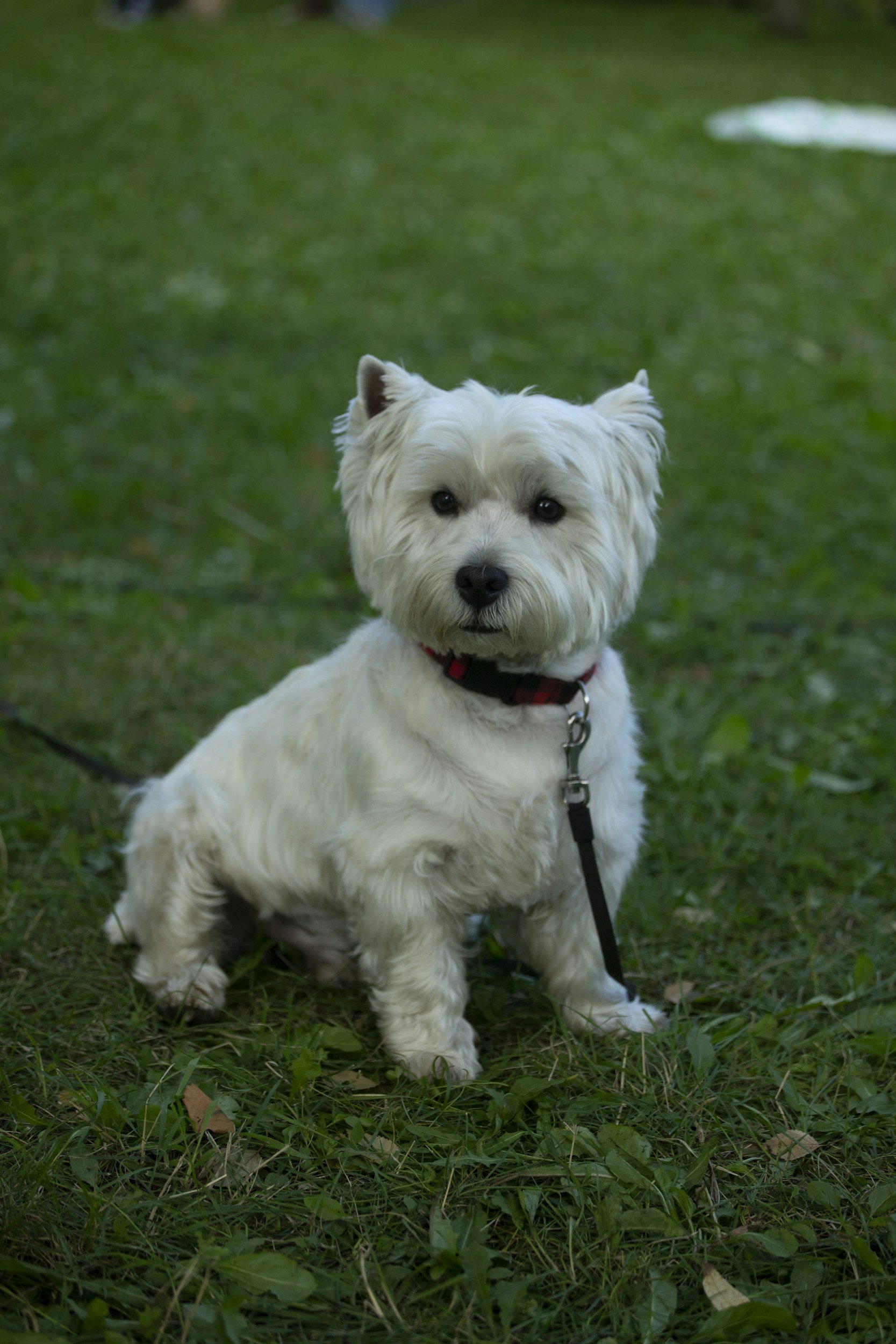
West Highland White Terrier
The West Highland White Terrier, commonly known as the "Westie," originated in Scotland, where it was bred for hunting small game like rats, foxes, and badgers. With their distinctive white coat and lively personality, Westies have become popular as both working dogs and beloved family companions. Known for their confidence, independence, and charm, Westies are small dogs with big personalities.
Fun Fact!
The West Highland White Terrier’s signature white coat was intentionally bred to distinguish them from game animals during hunting!
Overall
West Highland White Terriers are confident, lively, and affectionate dogs that make excellent companions for individuals or families. They require regular grooming, moderate exercise, and consistent training, but with proper care, they are loving and devoted pets that bring joy and companionship to their owners.
Essential information
-
Qualities
Confident and Lively
Westies are energetic and spirited dogs that enjoy engaging with their families.
Good with Families
They are affectionate and typically good with children, making them great family pets.
Adaptable and Compact
Their small size and moderate exercise needs make them suitable for apartments and houses with yards.
Low-Shedding Coat
Westies shed minimally, though their wiry coat requires regular grooming.
-
Considerations
Independent Streak
Their strong-willed nature can make training a challenge for inexperienced owners.
Prone to Skin Issues
Westies are predisposed to allergies and skin conditions, requiring diligent care.
Moderate Grooming Needs
Their coat needs regular brushing and professional trimming to maintain its appearance.
Can Be Territorial
Westies may bark at strangers or other animals, which can be managed with proper training.
-
Exercise & Training
Exercise Needs
Westies require moderate exercise to stay healthy and happy. They enjoy daily walks, playtime, and activities that engage their natural hunting instincts, such as scent games.
Walks
Westies benefit from one or two short walks per day, along with playtime in a secure yard or indoor space.
Training
Westies are intelligent but independent, making training a challenge at times. Positive reinforcement methods work best, and early obedience training is essential to establish good behavior. Consistency and patience are key, as Westies may test boundaries.
-
Cost
Purchase Price
$2,500 - $4,500 AUD depending on breeder and lineage.
Initial Setup
Around $400 - $700 AUD. (crate, bed, toys, etc.)
Food
Approximately $600 - $1,000 AUD per year, depending on dietary needs.
Grooming
Professional grooming every 6-8 weeks can cost around $600 - $800 AUD per year. Regular at-home brushing is necessary to maintain their coat.
Vet Bills
Initial vaccinations, microchipping, and desexing can cost around $500 - $1,000 AUD. Ongoing annual check-ups and preventive care could cost $400 - $700 AUD per year, with additional expenses for managing skin conditions.
Total Lifetime Cost
Over a 12-16 year lifespan, the total cost of ownership can range from $20,000 - $35,000 AUD, depending on health and lifestyle factors.
-
Characteristics
Size and Weight
Westies typically stand 25-28 cm (10-11 inches) tall and weigh between 6-10 kg (13-22 lbs).
Coat
They have a double coat with a soft undercoat and a wiry outer coat. Regular brushing and grooming are necessary to keep their coat healthy and mat-free.
Colour Options
True to their name, Westies are always white, which helps highlight their expressive dark eyes and black nose.
Temperament
Westies are confident, playful, and friendly dogs. They are independent but enjoy spending time with their families. Their lively and curious nature makes them entertaining companions. While they are generally affectionate, they can be stubborn and may require consistent training to establish boundaries.
Good with Children
Westies are good with older children who understand how to interact respectfully with dogs. They are playful and tolerant but may not tolerate rough handling by very young children.
Socialisation
Early socialisation is important to ensure Westies are well-adjusted and comfortable around new people, pets, and environments. Proper socialization helps reduce territorial behavior and excessive barking.
-
Living Environment Suitability
Indoors vs. Outdoors
Westies prefer to live indoors with their families but enjoy regular outdoor time for exercise and exploration. They are not suited for full-time outdoor living.
Apartment Living
Westies can adapt well to apartment living due to their small size and moderate exercise needs. However, they need daily walks and mental stimulation to stay happy.
Time Alone
Westies are independent and can tolerate being alone for moderate periods. However, they thrive on companionship and may become bored or anxious if isolated for extended periods. Providing toys and activities can help keep them entertained.
Climate Adaptability
Westies can adapt to various climates, but their white coat provides less protection against extreme heat or cold. In warmer regions, it’s important to provide plenty of water, shade, and avoid exercising them during the hottest parts of the day.
-
Healthcare
Common Health Issues
Westies are prone to certain health conditions, including Skin allergies and dermatitis, Hip dysplasia, Patellar luxation, Westie Lung Disease (idiopathic pulmonary fibrosis). Regular vet check-ups, a balanced diet, and proper grooming are essential for maintaining their health.
Ethical Breeding Considerations
Due to their predisposition to certain genetic conditions, it is important to purchase from a reputable breeder who conducts health screenings. Ethical breeding practices help reduce the risk of hereditary health problems and ensure the well-being of the puppies.
-
Additional info
Guarding Ability
Westies are alert and protective, making them good watchdogs. They may bark to alert their owners of strangers or unusual activity.
Affectionate Nature
Despite their independent streak, Westies are loyal and enjoy spending time with their families. They are known for their playful and loving demeanour.
Suitability for Dog Parks
Westies are generally social with other dogs but may display territorial behaviour. Early socialization helps improve their interactions with other pets.




